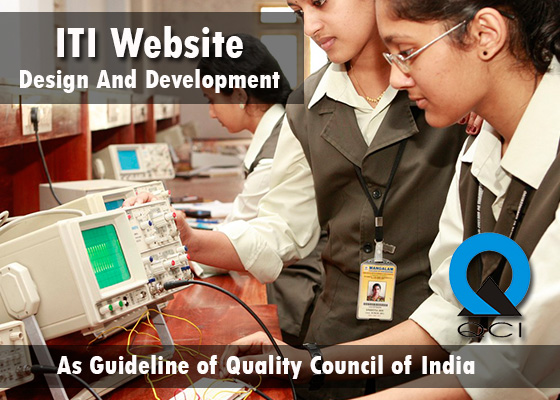Govt. Industrial Training Institute Narwana

Govt. Industrial Training Institute Narwana is situated in Jind Haryana. Govt. Industrial Training Institute Narwana is Industrial Training Institute under NCVT Govt. Industrial Training Institute Narwana.
Government ITI
Government ITI is leading educational organisatin in india. Teching facualty of Government ITI is suprimo. ITI is providing latest Job oriened cource for student. This Government ITI is powerd by 'Ministry of Skill Development and Entrepreneurship, Government of India for Craftsmen Training Scheme .
Haryana
The Department of Skill Development and Industrial Training, Haryana is imparting skill based training to the unemployed youth of state through the network of 172 Govt. Industrial Training Institutes (139 (Co-Ed.) GITIs and 33 GITIs for Women) and 246 Private ITIs under Craftsman Training Scheme. Engineering & Non- Engineering trade courses of one and two years duration are being run in these institutes. During the current academic year 2019-20, 57328 sanctioned seats in 2610 trade units have been released for admission in GITIs and 34388 sanctioned seats in 1593 trade units have been released for admission in private ITIs. 65627 (47386 in GITI's and 18241 in PITI's) Trainees admitted to Govt. & Pvt. ITI's during session 2019-20.
In the year 1966, when Haryana came into being, there was 48 Govt. Industrial Training Institutes with the seating capacity of 7156. Now, there are total 418 Govt. & Pvt. Industrial Training Institutes with 91716 sanctioned seats offering courses in 80 different trades. Quality of training in ITIs is being upgraded regularly by improvement in curriculum, training methodology and training of trainers through industry sector council at Govt. of India. New trades are also being introduced as per market demand.
Carpenter
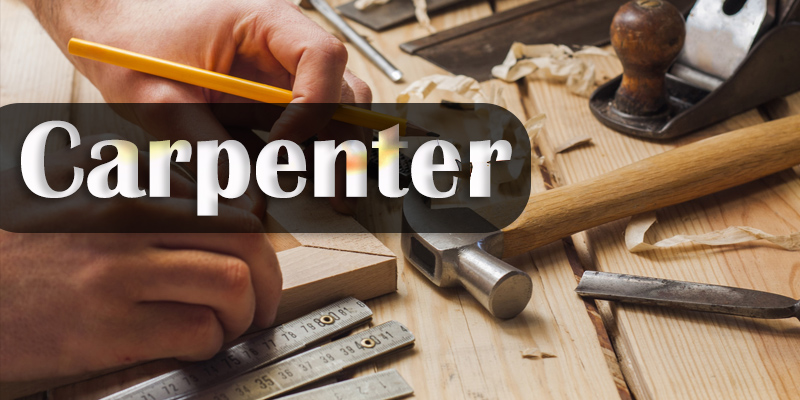
ITI trade Carpenter is powered by NCVT. ITI trade Carpenter is a job oriented trade ITI trade Carpenter is suitable for government job and private job. This ITI trade Carpenter is very powerful for self-empowerment. This ITI trade Carpenter is perfectly design to fulfill industrial requirement of Indian Industries as well as International industries.
Carpenter has a wide scope of Employability ranging from self-employment, contractual employment to Industrial jobs. On successful completion of this course, the candidates shall be gainfully employed in the industries for following occupations:
- Carpenter
- Carpenter Construction
Computer Operator and Programming Assistant (COPA)
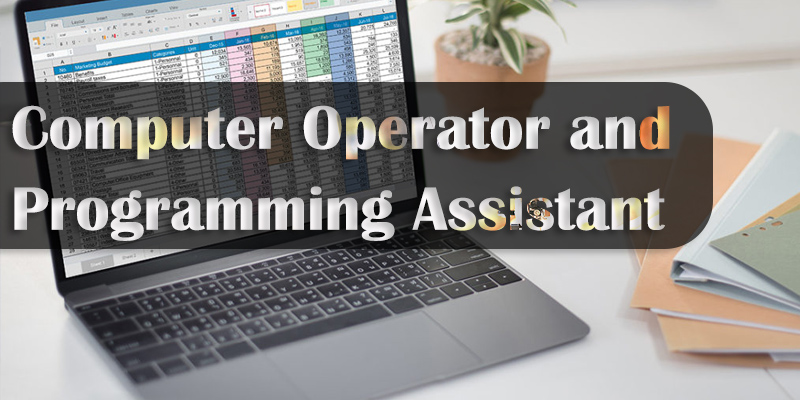
ITI trade Computer Operator and Programming Assistant (COPA) is powered by NCVT. ITI trade Computer Operator and Programming Assistant (COPA) is a job oriented trade ITI trade Computer Operator and Programming Assistant (COPA) is suitable for government job and private job. This ITI trade Computer Operator and Programming Assistant (COPA) is very powerful for self-empowerment. This ITI trade Computer Operator and Programming Assistant (COPA) is perfectly design to fulfill industrial requirement of Indian Industries as well as International industries.
The individual can work as both Computer Operator/ Programming Assistant; operates computer and peripheral equipment to process business, scientific, engineering, or other data, according to operating instructions. As programming assistant installs, maintains and updates computer programs by making minor changes and adjustments to them under the guidance of computing professionals. Maintains and updates documents of computer programs and installations with assistance under supervision of supervisor
On successful completion of this course the candidates shall be gainfully employed as:
- Computer Operator
- Programming Assistant
Draughtsman (Civil)
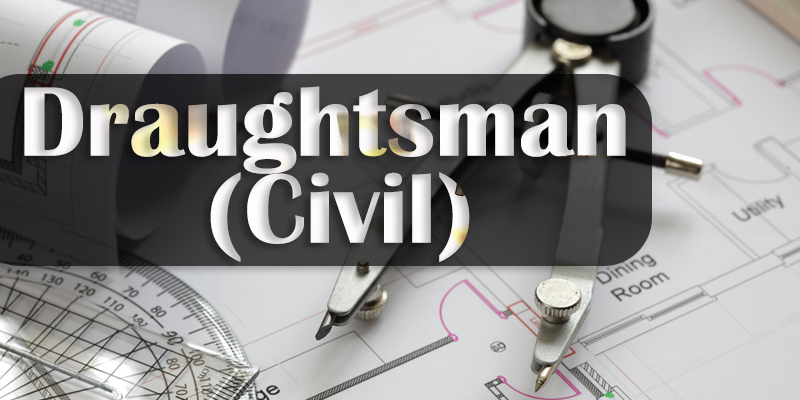
ITI trade Draughtsman (Civil) is powered by NCVT. ITI trade Draughtsman (Civil) is a job oriented trade ITI trade Draughtsman (Civil) is suitable for government job and private job. This ITI trade Draughtsman (Civil) is very powerful for self-empowerment. This ITI trade Draughtsman (Civil) is perfectly design to fulfill industrial requirement of Indian Industries as well as International industries.
This course is meant for the candidates who aspire to become Civil Draughtsmen whose job roles include planning and drawing sketches of residential buildings from given data, preparing working drawings of all types of buildings from line sketches in CAD, Planning, drawing, estimating, and costing of civil work, drawing plans by using CAD, and making of 3D models of civil work. Giving setting out of site, supervision of civil work etc.
International Comparability
- Existence of any official document suggesting the comparability of the qualification with the qualifications in other countries is not known.
- However, ITI passed out trainees are getting employment in many Gulf countries, European countries, Australia, New Zealand, Singapore etc.
Progression Pathway
- Can appear in 10+2 examination through National Institute of Open Schooling (NIOS) for acquiring higher secondary certificate and can go further for General/ Technical education.
- Can take admission in diploma course in notified branches of Engineering by lateral entry
- Can join as semi-skilled worker in the industry and can become supervisor after doing part-time diploma in relevant branch of Engineering after which they will be employed in construction industry as skilled worker and can become supervisor after doing part-time diploma in relevant branch of Engineering
- Can join Apprenticeship programme in different types of industries leading to National Apprenticeship certificate (NAC) after which they will be employed preferably in construction industry as skilled worker and can become supervisor after doing part-time diploma in relevant branch of Engineering
- Can join Crafts Instructor Training Scheme (CITS) in the trade for becoming instructor in ITIs.
Draughtsman (Mech.)
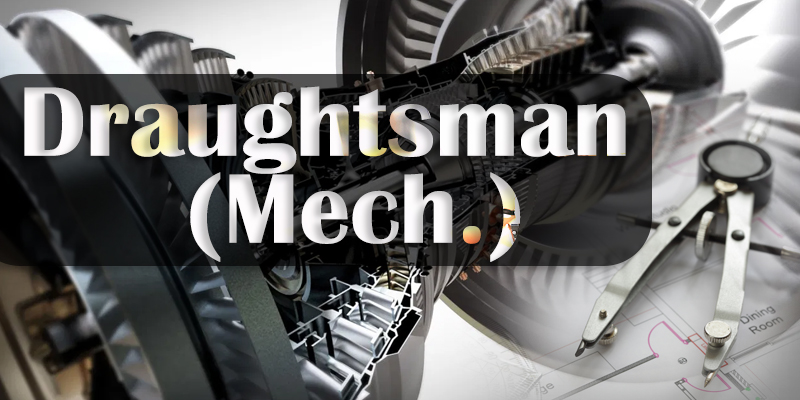
ITI trade Draughtsman (Mech.) is powered by NCVT. ITI trade Draughtsman (Mech.) is a job oriented trade ITI trade Draughtsman (Mech.) is suitable for government job and private job. This ITI trade Draughtsman (Mech.) is very powerful for self-empowerment. This ITI trade Draughtsman (Mech.) is perfectly design to fulfill industrial requirement of Indian Industries as well as International industries.
On successful completion of this course, the candidates shall be gainfully employed as:
- Mechanical Draughtsman, Tracer, Designer of mechanical parts in Production & Manufacturing industries.
- In Infrastructure and defence organizations.
- In public sector industries and private industries in India & abroad.
- Draughtsman Mechanical have a wide scope of Employability ranging from self-employment, contractual employment to Industrial jobs.
International Comparability
- 1. Existence of any official document suggesting the comparability of the qualification with the qualifications in other countries is not known.
- 2. However, ITI passed out trainees are getting employment in many Gulf countries, European countries, Australia, New Zealand, Singapore etc.
Progression Pathway
- Can appear in 10+2 examination through National Institute of Open Schooling (NIOS) for acquiring higher secondary certificate and can go further for General/ Technical education
- Can join Apprenticeship programme in different types of industries leading to National Apprenticeship certificate (NAC)
- Can join Crafts Instructor Training Scheme (CITS) in the relevant trade after which they will be employed in ITI/ Vocational Training Institute as instructor
- can become supervisor after doing diploma in relevant branch of Engineering
Electrician

ITI trade Electrician is powered by NCVT. ITI trade Electrician is a job oriented trade ITI trade Electrician is suitable for government job and private job. This ITI trade Electrician is very powerful for self-empowerment. This ITI trade Electrician is perfectly design to fulfill industrial requirement of Indian Industries as well as International industries.
- Electricians have a wide scope of Employability ranging from self-employment, contractual employment to Industrial jobs.
- After successful completion of this course, Electricians can aspire to become Electrical Contractors by acquiring the ‘B” licence from the Electrical Licence Board.
- They can set up their own Rewinding and servicing of Domestic Equipment shop.
- Job opportunities are wide open in Defence, Railways, Transport, Ship Building, Electricity Board, various Industries etc
- They can also go for further higher studies after successful completion of course.
- Students who have completed this course have found employment in the following areas:
- Service/Maintenance Technician for domestic appliances in Reputed Companies
- Winder of Electrical Motors in winding shop
- Contractor for domestic wiring and industrial wiring
- Armature winder of Electrical fans and motors
- Electrical appliance repair in electrical shops
- Indian Railway (Asst. Driver, Tech. Gr. III, Appr. Technician)
- Local Electricity Board
- Assembler of Electrical control Gears
- Telephone Department
- Installation and Testing division of Auditorium and Cinema Hall
- Factories
- As Instructor in Govt./Private ITI/ITC
- Merchant Navy
- Indian Air Force
- Self-Employment in Service Centre
Fitter
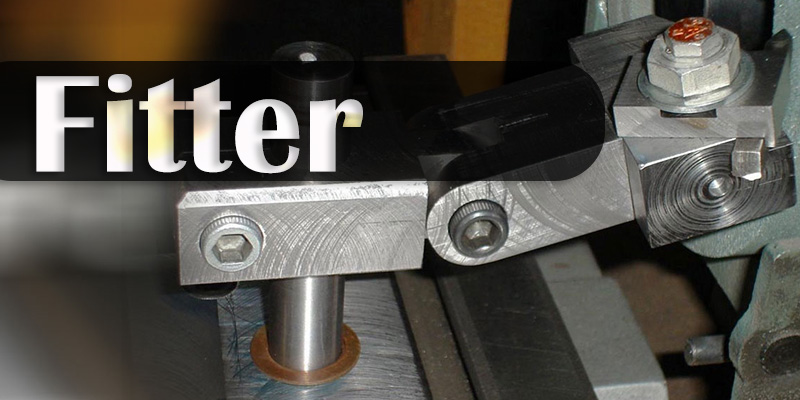
ITI trade Fitter is powered by NCVT. ITI trade Fitter is a job oriented trade ITI trade Fitter is suitable for government job and private job. This ITI trade Fitter is very powerful for self-empowerment. This ITI trade Fitter is perfectly design to fulfill industrial requirement of Indian Industries as well as International industries.
Fitters have a wide scope of Employability ranging from self-employment, contractual employment to Industrial jobs. On successful completion of this course, the candidates shall be gainfully employed in the following industries:
- Production & Manufacturing industries.
- Structural Fabrication like bridges, Roof structures, Building & construction.
- Automobile and allied industries
- Service industries like road transportation and Railways.
- Ship building and repair
- Infrastructure and defence organizations
- In public sector industries like BHEL, BEML, NTPC, etc and private industries in India & abroad.
- Self employment
International Comparability
- Existence of any official document suggesting the comparability of the qualification with the qualifications in other countries is not known.
- However, ITI passed out trainees are getting employment in many Gulf countries, European countries, Australia, New Zealand, Singapore etc.
Progression Pathway
- Can appear in 10+2 examination through National Institute of Open Schooling (NIOS) for acquiring higher secondary certificate and can go further for General/ Technical education
- Can take admission in diploma course in notified branches of Engineering by lateral entry
- Can join as semi-skilled worker in the industry and can become supervisor after doing part-time diploma in relevant branch of Engineering
- Can join Apprenticeship programme in different types of industries leading to National Apprenticeship certificate (NAC) after which they will be employed in industry as skilled worker and can become supervisor after doing part-time diploma in relevant branch of Engineering
- Can join Crafts Instructor Training Scheme (CITS) in the relevant trade after which they will be employed in ITI/ Vocational Training Institute as instructor
Foundryman
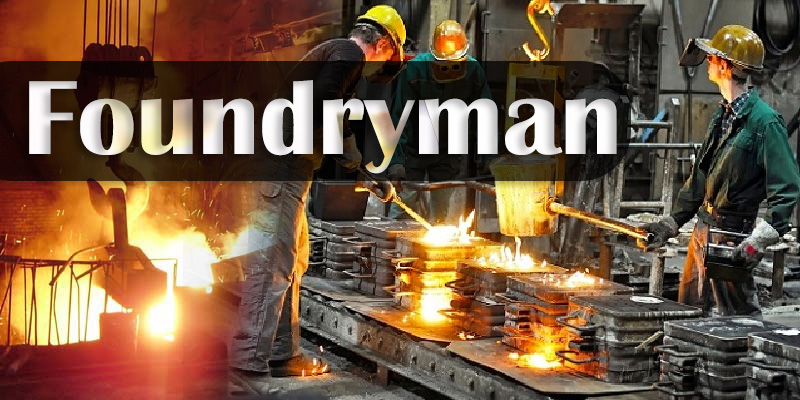
ITI trade Foundryman is powered by NCVT. ITI trade Foundryman is a job oriented trade ITI trade Foundryman is suitable for government job and private job. This ITI trade Foundryman is very powerful for self-empowerment. This ITI trade Foundryman is perfectly design to fulfill industrial requirement of Indian Industries as well as International industries.
On successful completion of this course, the candidates shall be gainfully employed as:
- Moulder, Die Casting Machine Operator, Core Maker and Annealer in Production & Manufacturing industries.
- Trainees of Foundry man Trade have a wide scope of Employability ranging from self-employment, contractual employment to Industrial jobs
Progression Pathway
Can join Apprenticeship programme in different types of industries leading to National Apprenticeship certificate (NAC) Can join Crafts Instructor Training Scheme (CITS) in the relevant trade after which they will be employed in ITI/ Vocational Training Institute as instructor can become supervisor after doing diploma in relevant branch of Engineering through lateral entry
Machinist
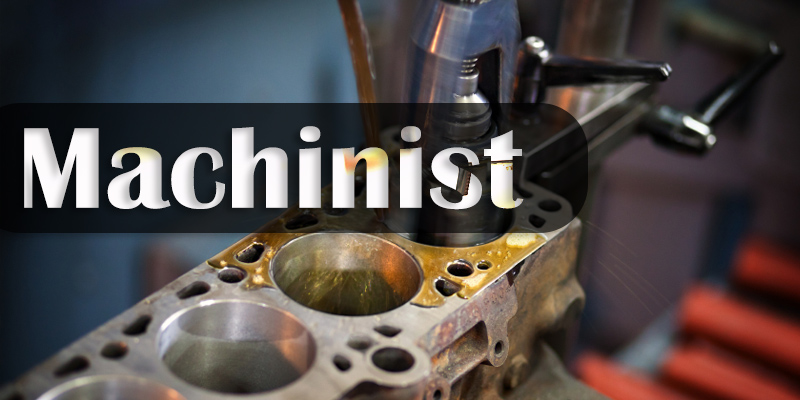
ITI trade Machinist is powered by NCVT. ITI trade Machinist is a job oriented trade ITI trade Machinist is suitable for government job and private job. This ITI trade Machinist is very powerful for self-empowerment. This ITI trade Machinist is perfectly design to fulfill industrial requirement of Indian Industries as well as International industries.
On successful completion of this course, the candidates shall be gainfully employed as:
• Machinist, Grinder, Operator of various types of power driven metal cutting or grinding machines in Production & Manufacturing industries,Infrastructure and defence organizations.
• Machinists have a wide scope of Employability ranging from self-employment, contractual employment to Industrial jobs.
International Comparability
- 1. Comparison Made with German Syllabus and the proposed syllabus is in line with the existing German Syllabus (Around 95% contents are matching).
- 2. However, ITI passed out trainees are getting employment in many Gulf countries, European countries, Australia, New Zealand, Singapore etc.
Progression Pathway
- Can appear in 10+2 examination through National Institute of Open Schooling (NIOS) for acquiring higher secondary certificate and can go further for General/ Technical education
- Can take admission in diploma course in notified branches of Engineering by lateral entry
- Can become supervisor after doing part-time diploma in relevant branch of Engineering.
- Can join Apprenticeship programme in different types of industries leading to National Apprenticeship certificate (NAC) after which they will be employed in industry as skilled worker and can become supervisor after doing part-time diploma in relevant branch of Engineering
- Can join Crafts Instructor Training Scheme (CITS) in the relevant trade after which they will be employed in ITI/ Vocational Training Institute as instructor
Mechanic (Motor Vehicle)
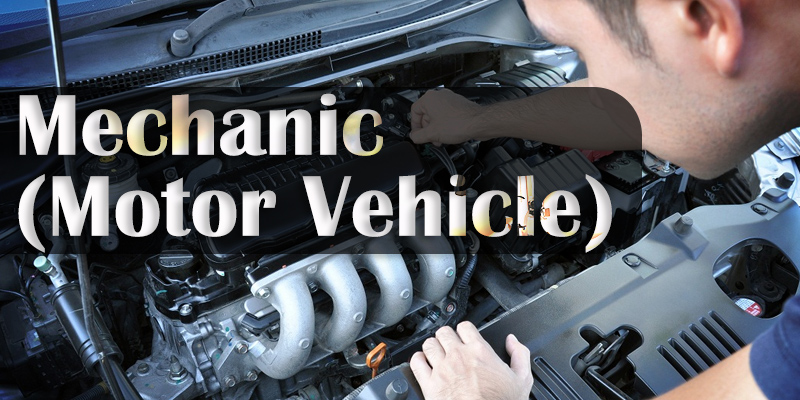
ITI trade Mechanic (Motor Vehicle) is powered by NCVT. ITI trade Mechanic (Motor Vehicle) is a job oriented trade ITI trade Mechanic (Motor Vehicle) is suitable for government job and private job. This ITI trade Mechanic (Motor Vehicle) is very powerful for self-empowerment. This ITI trade Mechanic (Motor Vehicle) is perfectly design to fulfill industrial requirement of Indian Industries as well as International industries.
Installs, tests, maintains, repairs and replaces electrical Power distribution/power line equipments and fittings in factories, workshops, power house, business and residential premises etc. Manipulates controls to adjust and activate those equipments. Monitors and records control board/room readings, examines faults in control room and repairs substation equipments and panels to ensure proper operational efficiency.
Mechanic Motor Vehicle (MMV) has a wide scope of Employability ranging from self-employment, contractual employment to Industrial jobs. On successful completion of this course, the candidates shall be gainfully employed in the industries for following occupations:
- Motor Vehicle Mechanics, Other
- Mechanic, Automobile
- Maintenance Technician – Service
- Workshop
- Auto Service Technician – Mechanic
- Fitter Automobile
Mechanic (Tractor)
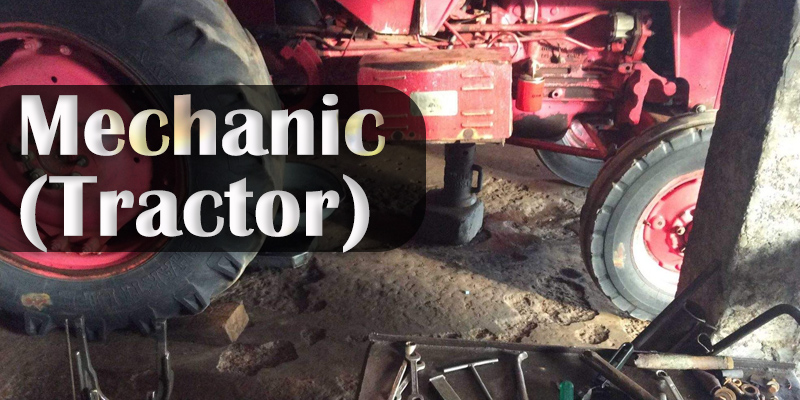
ITI trade Mechanic (Tractor) is powered by NCVT. ITI trade Mechanic (Tractor) is a job oriented trade ITI trade Mechanic (Tractor) is suitable for government job and private job. This ITI trade Mechanic (Tractor) is very powerful for self-empowerment. This ITI trade Mechanic (Tractor) is perfectly design to fulfill industrial requirement of Indian Industries as well as International industries.
The trainee attending the course on ‘Mechanic Tractor’ shall be able to perform basic fitting , grinding, surface finishing, sheet metal, bending, and welding operations and carry out electrical/electronic, nondestructive, and battery tests, in an tractor workshop. The trainee shall be able to service cooling and lubrication systems, intake and exhaust systems, and fuel feed system, of the tractor. The trainee shall also be able to overhaul diesel engine, clutch and gearbox, differential and PTO Unit, steering system, assemblies of power tiller, implements, and charging and starting systems, of the tractor.
Mechanic Tractor repairs and overhauls tractors by various mechanical processes for agriculture, constructional and other heavy duties
Trade Practical (27 Hrs/week)
Familiarisation with institute, Job opportunities in the automobile sector, Machinery used in Trade. Types of work done by the students in the shop floor.
Practical related to Safety and Health, Importance of maintenance and cleanliness of Workshop. Interaction with health centre and fire service station to provide demo on First aid and Fire safety, Use of fire extinguishers. Demonstration on safe handling and Periodic testing of lifting equipment, and Safety disposal of Used engine oil. Energy saving Tips of ITI electricity Usage
Practice using all marking aids, like steel rule with spring calipers, dividers, scriber, punches, Chisel etc., Layout a work piece- for line, circle, arcs and circles. Practice to measure a wheel base of a vehicle with measuring tape. Practice to measure valve spring tension using spring tension tester Practice to remove wheel lug nuts with use of an air impact wrench Practice on General workshop tools & power tools.
Measuring practice on Cam height, Camshaft Journal dia, crankshaft journal dia, Valve stem dia, piston diameter, and piston pin dia with outside Micrometers. Measuring practice on the height of the rotor of an oil pump from the surface of the housing or any other auto component measurement with depth micrometer. Measuring practice on valve spring free length. Measuring practice on cylinder bore, Connecting rod bore, inside diameter (ID) of a camshaft bearing with Telescope gauges. Measuring practice on cylinder bore for taper and out-of-round with Dial bore gauges. Measuring practice to measure wear on crankshaft end play, crankshaft run out, and valve guide with dial indicator. Measuring practice to check the flatness of the cylinder head is warped or twisted with straightedge is used with a feeler gauge. Measuring practice to check the end gap of a piston ring, piston-tocylinder wall clearance with feeler gauge. Practice to check engine manifold vacuum with vacuum gauge. Practice to check the air pressure inside the vehicle tires is maintained at the recommended setting
Practice on General cleaning, checking and use of nut, bolts, & studs etc., Removal of stud/bolt from blind hole. Practice on cutting tools like Hacksaw, file, chisel, Sharpening of Chisels, center punch, safety precautions while grinding. Practice on Hacksawing and filing to given dimensions.
Practice on Marking and Drilling clear and Blind Holes, Sharpening of Twist Drills Safety precautions to be observed while using a drilling machine. Practice on Tapping a Clear and Blind Hole, Selection of tape drill Size, use of Lubrication, Use of stud extractor. Cutting Threads on a Bolt/ Stud. Adjustment of two piece Die, Reaming a hole/ Bush to suit the given pin/ shaft, scraping a given machined surface.
Practice on making Rectangular Tray. Pipe bending, Fitting nipples unions in pipes. Soldering and Brazing of Pipes.
Practice in joining wires using soldering Iron, Construction of simple electrical circuits, Measuring of current, voltage and resistance using digital multimeter, practice continuity test for fuses, jumper wires, fusible links, circuit breakers.
Diagnose series, parallel, seriesparallel circuits using Ohm’s law, Check electrical circuit with a test lamp, perform voltage drop test in circuits using multimeter, measure current flow using multimeter /ammeter, use of service manual wiring diagram for troubleshooting.
Cleaning and topping up of a lead acid battery, Testing battery with hydrometer, Connecting battery to a charger for battery charging, Inspecting & testing a battery after charging, Measure and Diagnose the cause(s) of excessive Key-off battery drain (parasitic draw) and do corrective action. Testing of relay and solenoids and its circuit.
Identify and test power and signal connectors for continuity, Identify and test different type of Diodes, NPN & PNP Transistors for its functionality, Construct and test simple logic circuits OR, AND & NOT and Logic gates using switches.
Practice to make straight beads and Butt, Lap & T joints Manual Metal Arc Welding. Setting of Gas welding flames, practice to make a straight beads and joints Oxy – Acetylene welding Film on Heat treatment process
Practice on Liquid penetrant testing method and Magnetic particle testing method. Identification of Hydraulic and pneumatic components used in vehicle. Tracing of hydraulic circuit on hydraulic jack, hydraulic power steering, and Brake circuit. Identification of components in Air brake systems.
Painter (General)

ITI trade Painter (General) is powered by NCVT. ITI trade Painter (General) is a job oriented trade ITI trade Painter (General) is suitable for government job and private job. This ITI trade Painter (General) is very powerful for self-empowerment. This ITI trade Painter (General) is perfectly design to fulfill industrial requirement of Indian Industries as well as International industries.
The ‘Painter (General)’ trade under CTS is one of the popular newly designed courses. The course is of two years (04 semester) duration. It mainly consists of Domain area and Core area. In the Domain area (Trade Theory & Practical) impart professional skills and knowledge, while Core area (Workshop Calculation & science, Engineering Drawing and Employability Skills) impart requisite core skill, knowledge and life skills. After passing out the training program, the trainee is awarded National Trade Certificate (NTC) by NCVT which is recognized worldwide.
Applies decorative or protective coats of paint, varnish, shellac, enamel, lacquer or other materials on exterior or interior surfaces, trimming and fixtures of glass, metal, wood, plaster concrete brick, building boards or other objects using suitable tools as per work requirement
Painter (General) has a wide scope of Employability ranging from self-employment, contractual employment to Industrial jobs.
On successful completion of this course, the candidates shall be gainfully employed in the industries for following occupations:
- Painter,
- General
job roles
Painter, General applies decorative or protective coats of paint, varnish, shellac, enamel, lacquer or other materials on exterior or interior surfaces, trimming and fixtures of glass, metal, wood, plaster concrete brick, building boards or other objects using brush, spray gun, roller, stencils etc. Receives work order and selects correct type of paint materials with the consideration to suitability, durability, ease of application and estimated cost. Mixes pigments, oils and other ingredients to material where required by manual or mechanical mixing device using paddle or electric mixer to obtain desired colour, shade and consistency. Removes dirt, grease or rough spots and irregularities by scrapers, chemicals and abrasives and patches cracks and holes with putty or other filler. Covers surface with appropriate prime coat or sealer to have suitable surface or base for paint. Brushes, sprays or stencils one or more coats of material on surfaces. May finish or decorate surfaces by gilding, silvering or painting over stencils. May be designated according to object coated or material used. May mix paint with linseed oil, colouring matter of materials, labour, etc. May erect scaffolds to facilitate work.
Plan and organize assigned work and detect & resolve issues during execution. Demonstrate possible solutions and agree tasks within the team. Communicate with required clarity and understand technical English. Sensitive to environment, self-learning and productivity.
Plumber
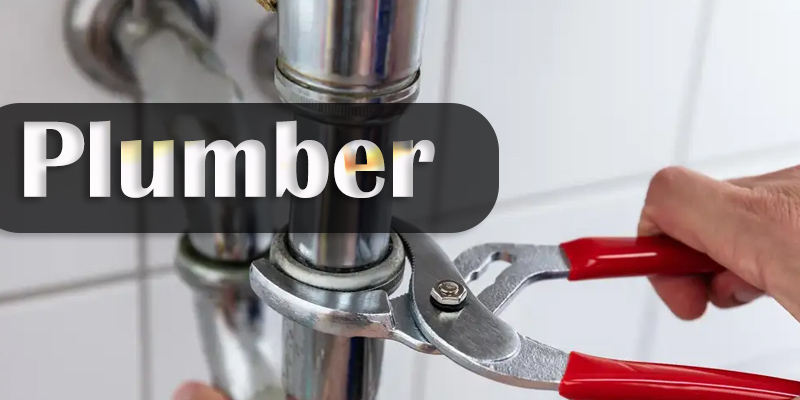
ITI trade Plumber is powered by NCVT. ITI trade Plumber is a job oriented trade ITI trade Plumber is suitable for government job and private job. This ITI trade Plumber is very powerful for self-empowerment. This ITI trade Plumber is perfectly design to fulfill industrial requirement of Indian Industries as well as International industries.
Plumber trade under CTS is one of the popular courses delivered nationwide through network of ITIs. The course is of one year (02 semester) duration. It mainly consists of Domain area and Core area. In the Domain area (Trade Theory & Practical) impart professional - skills and knowledge, while Core area (Workshop Calculation science, Engineering Drawing and Employability Skills) imparts requisite core skills, knowledge and life skills. After passing out of the training program, the trainee is awarded National Trade Certificate (NTC) by NCVT which is recognized worldwide.
Plumber assembles, installs and maintains sanitary fittings and fixtures, sewage and drainage systems, heating and sanitary systems, gas and water pipe lines etc. Responsible for installation, operation and repair of plumbing system used in housing, commercial and institutional setups, drills passage holes in walls or floor of premises and fixes necessary brackets, stands, holders etc., maintenance and servicing of pipes and sanitary fixtures.
Plumber has a wide scope of Employability ranging from self-employment, contractual employment to Industrial jobs. On successful completion of this course, the candidates shall be gainfully employed in the industries for following occupations:
- Plumber, General
- Plumber, Operations
- Plumber, General-Installation and Repair
- Plumber, General Helper
- Plumber, General Assistant
- Plumber, Maintenance and Servicing Assistant
- Plumber, Maintenance and Servicing
- Pipe Layer/Plumber Pipeline
- Pipe Fitter
- Plumbers and Pipe Fitters, Other
- Plumber (Welder)/Plumbing (Sanitary Fixtures) Fitter Assistant
- Plumber (Welder) Assistant
- Plumber (Pumps and E/M Mechanic)
JOB ROLE
Plumber, General; lays out, assembles, installs and maintains sanitary fittings and fixtures, sewage and drainage systems, heating and sanitary systems, gas and water pipe lines etc. Receives instructions from Sanitary Engineer or Civil Engineer regarding lay out of pipes, gas or water mains, position of fixtures and fittings, etc. Examines drawings or other specifications regarding size and dimensions of area where sanitary fittings or pipe are to be fitted or laid. Marks points at places to indicate position for fixing brackets and laying pipes. Drills passage holes in walls or floor of premises and fixes necessary brackets, stands, holders etc. to keep or hold fittings and fixtures in position, using nuts, bolts, clamps etc. and tightens them with hand tools. Cuts reams, threads and bends pipes as appropriate. Ensures that pipe lines are laid properly by Pipe Fitter. Joins pipes with sockets, Tees, elbow etc. or with molten lead or lead wool. Caulks joints (operation of making joint seam tight to withstand pressure) and tests them for leaks with pneumatic or hydraulic pressure. May repair and maintain sewerage and pipe lines by replacing washers on leaky faucets, mending burst pipes, opening clogged drains, etc. May do lead burning, dressing and bossing of lead pipe and sheet lead, inlaying of wooden tanks, construction of septic tanks etc
Plumber, Operations; is responsible for operation of plumbing system used in housing, commercial and institutional setups.
Plumber, General-Installation and Repair; Plumber (General)-II is responsible for installation and repair plumbing systems including those of advanced sanitary fixtures as per manufacturer͛s specifications in housing, commercial and institutional setups.
Plumber, General Helper; is responsible for helping Plumber (General) by carrying and handling of tools and materials required in installation, minor repair and maintenance of plumbing systems.
Plumber, General Assistant; is responsible for assistance in, preliminary installation and minor repair work of basic plumbing systems in domestic, commercial and institutional setups.
Plumber, Maintenance and Servicing Assistant; is responsible for assistance in maintenance and servicing of pipes and sanitary fixtures in housing, commercial and institutional setups.
Plumber, Maintenance and Servicing; is responsible for assistance in maintenance and servicing of pipes and sanitary fixtures in housing, commercial and institutional setups.
Pipe Layer/Plumber Pipeline; Sewer Pipe Layer lays concrete, stone ware or clay pipes to form sanitary drains and sewers. Receives instructions regarding size and type of concrete, stone ware or clay pipe to be laid. Digs or gets earth dug along marked lines using spade, picks etc. to make trenches for laying pipes. Levels and smoothens bottom of trenches to proper gradient by scooping with shovels. Receives pipes of required size lowered into trench manually or by pulley and adjusts their position by hand or crow-bar for correct levelling and vertical and horizontal alignment. Joints pipes together using appropriate couplings, joints, rings etc. and closes joints by caulking with fibre and cement to prevent leakage. Tests joints by hydraulic or pneumatic pressure after sealing. Fills trench with earth to cover laid pipe and rams earth to avoid sinking. Is designated as PIPE LAYER WATERMAINS or WATER MAINS FITTER if engaged in laying cast iron or galvanized iron water pipe mains and in caulking their joints with lead to prevent leakage. May lay pipe lines to provide water connection to houses, sanitary sewers etc. May fix meters to stopcocks, remove defects from pipe lines and replace defective ones.
Pipe Fitter; lays, repairs and maintains, pipes for supply of water, gas, oil or steam in buildings, gardens, workshops, stores, ships etc., according to drawings or instructions. Examines drawings and other specifications or receives relevant instructions. Cuts passage holes for laying pipes in walls and floors. Cuts reams, threads and bends pipes according to specifications. Lays pipes in cut passage and assembles pipe sections with couplings, sockets, Tee's elbows etc. Levels position of pipes using sprit level for gravitational flow. Caulks joints, tests them for leakage with pneumatic or hydraulic pressure and secures pipe line to structure with clamps, brackets, and hangers. Fits water meters, taps etc. to pipe where necessary. Repairs and replaces leaky pipe lines, taps and joints and provides connections to overhead water tanks. Helps Plumber, General in fittings sanitary fittings to buildings. May join pipe sections and fittings.
Plumbers and Pipe Fitters, Other; perform number of routine and low skilled tasks such as assisting in laying pipes, making water tight joints, fitting sockets and reducers, threading pipes with taps and dies, removing leakages, etc., and are designated as Plumber Mate or Pipe Fitter Helper according to type of work done.
Plumber (Welder)/Plumbing (Sanitary Fixtures) Fitter Assistant; is responsible for welding activities related to plumbing works in housing, commercial and institutional setups.
Plumber (Welder) Assistant; is responsible for assistance in welding activities related to plumbing works in housing, commercial and institutional setups.
Plumber (Pumps and E/M Mechanic); is responsible for installation and repair of Pumps and E/M equipment used for different plumbing applications of housing, commercial and institutional Set ups.
Sewing Technology

ITI trade Sewing Technology is powered by NCVT. ITI trade Sewing Technology is a job oriented trade ITI trade Sewing Technology is suitable for government job and private job. This ITI trade Sewing Technology is very powerful for self-empowerment. This ITI trade Sewing Technology is perfectly design to fulfill industrial requirement of Indian Industries as well as International industries.
A trainee of the course ‘Sewing Technology’ constructs Sari Petticoat, Ladies’ Top/Short Kurthies, Ladies’ Suit, Nightwear (One Piece with Yoke), Nightwear (Two Piece – Night suit), Sari Blouse (Simple Model - Plain), Dress for a Newborn (Jhabla), Dress for a Toddler (Sun Suit), Dress for Kids (Frock), Dress for Kids (Frock), Gent’s, Casual Shirt, and Gent’s Trousers, according the sketched designs. The trainee also practices, maintains and troubleshoots basic sewing machines and over-lock machines. The course is meant for a trainee who aspires to become a Sewing Machine operator, Assistant to Designer, Assistant worker in Boutique, Assistant to Sample Garment Designer and Assistant to Garment Sample Coordinator
The qualification gives access to jobs such as Sewing Machine operator, Assistant to Designer, Assistant worker in Boutique, Assistant to Sample Garment Designer and Assistant to Garment Sample Coordinator
Stenographer & Secretarial Assistant (Hindi)

ITI trade Stenographer & Secretarial Assistant (Hindi) is powered by NCVT. ITI trade Stenographer & Secretarial Assistant (Hindi) is a job oriented trade ITI trade Stenographer & Secretarial Assistant (Hindi) is suitable for government job and private job. This ITI trade Stenographer & Secretarial Assistant (Hindi) is very powerful for self-empowerment. This ITI trade Stenographer & Secretarial Assistant (Hindi) is perfectly design to fulfill industrial requirement of Indian Industries as well as International industries.
‘Stenographer Secretarial Assistant (Hindi)’ trade under CTS is delivered nationwide through a network of ITIs. The course is of one year (02 semester) duration. It mainly consists of Domain area and Core area. In the Domain area (Trade Theory & Practical) impart professional skills and knowledge, while the Core area (Employability Skill) imparts requisite core skills, knowledge, and life skills. After passing out the training program, the trainee is awarded National Trade Certificate (NTC) by NCVT which is recognized worldwide.
Stenographer Secretarial Assistant (Hindi) takes dictation in shorthand and reproduces it on paper using computer and performs various other clerical duties to assist superiors. He/she drafts business letters in clear and precise manner for easy understanding; prepares reports and documents for inter-department.
Stenographer Secretarial Assistant (Hindi) has a wide scope of Employability ranging from self-employment, contractual employment. On successful completion of this course, the candidates shall be gainfully employed in the industries for following occupations:
- Secretary/Back Office Support
- Private Secretary
- Personal Secretary
- Secretaries, Other
JOB ROLE
Stenographer Secretarial Assistant (Hindi); takes dictation in shorthand and reproduces it on paper using computer and performs various other clerical duties to assist superiors. Maintain a good mannerism and professional approach with the boss.
Private Secretary-cum-Stenographer; Personal Assistant takes dictation in shorthand and reproduces it on paper using typewriter and performs various other clerical duties to assist superiors. Takes dictations in shorthand and transcribes them using typewriter. Receives and opens mail and submits it to superiors for information and further action. Maintains diary to note time, date and place of meetings and other engagements for employer or superior. Reminds employer or superior of engagements and accompanies him if required. Attends to routine enquiries in person, writing or over phone. Receives visitors and arranges their interviews with superior. Keeps important and confidential records. May attend to routine correspondence on behalf of employer.
Personal Secretary; performs routine clerical and administrative functions such as drafting correspondence, scheduling appointments, organizing and maintaining paper and electronic files, or providing information to callers. Operates office equipment such as fax machines, copiers, and phone systems, and use computers for spreadsheet, word processing, database management, and other applications. Answers telephones and give information to callers, take messages, or transfer calls to appropriate individuals. Greets visitors and callers, handle their inquiries, and direct them to the appropriate persons according to their needs. Sets up and maintains paper and electronic filing systems for records, correspondence, and other material. Locates and attaches appropriate files to incoming correspondence requiring replies. Opens, reads, routes, and distributes incoming mail and other material, and prepares answers to routine letters. Completes forms in accordance with company procedures
Secretaries, Other; include secretaries who use typewriters or word-processing equipment to check and transcribe correspondence and other documents, deal with incoming and outgoing mail, and deal with routine correspondence on their own initiative not elsewhere classified.
Secretary/Back Office Support; Stenographers; Steno-typist records dictations in shorthand and transcribe them in typewritten form. Takes dictation in shorthand. Transcribe dictated material from note book, using typewriter. Compares typed matter and submits them to superiors. May cut stencil on typewriter for use on duplicating machine.
Surface Ornamentation Techniques (Embroidery)
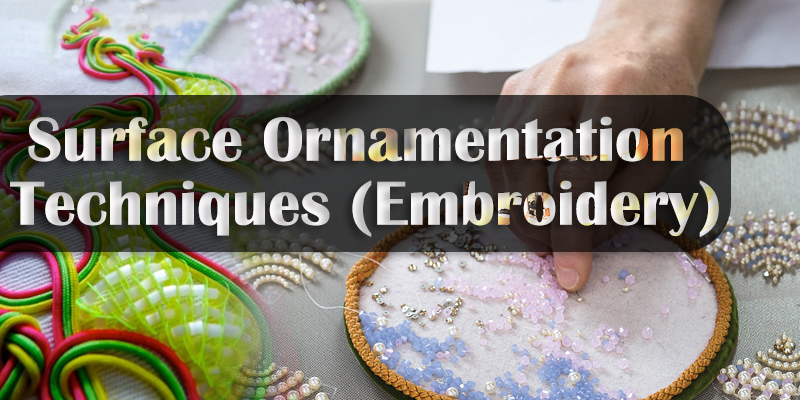
ITI trade Surface Ornamentation Techniques (Embroidery) is powered by NCVT. ITI trade Surface Ornamentation Techniques (Embroidery) is a job oriented trade ITI trade Surface Ornamentation Techniques (Embroidery) is suitable for government job and private job. This ITI trade Surface Ornamentation Techniques (Embroidery) is very powerful for self-empowerment. This ITI trade Surface Ornamentation Techniques (Embroidery) is perfectly design to fulfill industrial requirement of Indian Industries as well as International industries.
A trainee of the course ‘Surface Ornamentation Techniques (Embroidary)’ carries out typical embroidery works such as Drawn and Pulled Thread, Assisi, Cut, Swiss, and Shadow, and traditional embroidery works such as Phulkari, Kantha, Kasuti, Chikankari, Kashida, Chamba, and Kutch. The trainee also prepares fancy nets such as Cane weaving, Fancy net with Lazy Daisy, Fancy net with Cross Stitch, Fancy net with Circles, and Button hole net and carries out Appliqué work such as Simple Appliqué, Cut Appliqué, and Felt Appliqué. The course is meant for the candidates who aspire to become Tracing experts, Hand Embroider, Zig-Zag Machine Operator, Aari Embroider, Motif Maker, Entrepreneur & Design Coordinate to Fashion Designer
The qualification gives access to jobs such as Tracing experts, Hand Embroider, Zig-Zag Machine Operator, Aari Embroider, Motif Maker, Entrepreneur & Design Coordinate to Fashion Designer
JOB ROLES
This course is meant for the candidates who aspire to become Tracing experts, Hand Embroider, ZigZag Machine Operator, Aari Embroider, Motif Maker, Entrepreneur & Design Coordinate to Fashion Designer.
Technician Power Electronics System
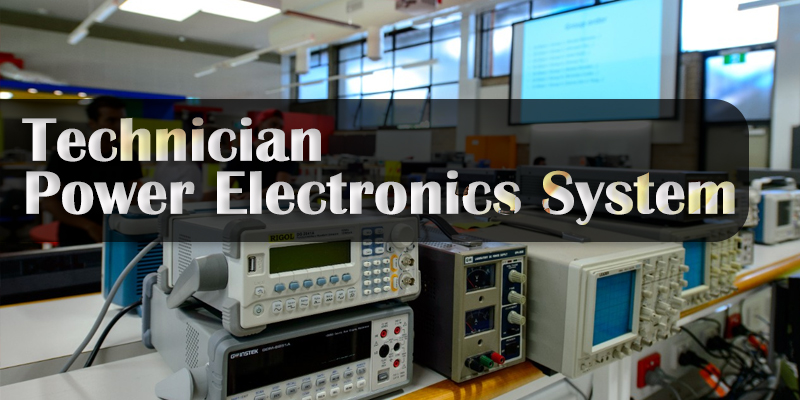
During the two years duration of Technician Power Electronics Systems trade, a candidate is trained on Professional Skill, Professional Knowledge, Engineering Drawing, Workshop Calculation & Science and Employability Skill. In addition to this, a candidate is entrusted to undertake project work and extracurricular activities to build up confidence. The broad components covered related to the trade are categorized in four semesters each of six months duration. The semester wise course coverage is categorized as below:
1stSemester – In this semester, the trainee learns about safety and environment, use of fire extinguishers, artificial respiratory resuscitation to begin with. He gets the idea of trade tools & its standardization, familiarize with basics of electricity, test the cable and measure the electrical parameter. Skilling practice on different types & combination of cells for operation and maintenance of batteries being done. Identify and test passive and active electronic components. Construct and and de-soldering of various PCBs. Assemble a computerest unregulated and regulated power supplies. Practice soldering types of electrical and electronic components on through-hole system, install OS, Practice with MS office. Use the internet, browse, create mail IDs, download desired data from internet using search engines.
2nd Semester - In this semester, the candidate will be able to construct and test amplifier, oscillator and wave shaping circuits. Testing of power electronic components. Construct and test power control circuits. Identify and test opto-electronic devices. Able to achieve the skill on SMD Soldering and De-soldering of discrete SMD components. Verifying the truth tables of various digital 1Cs by referring Data book. ractice circuit simulation software to simulate and test various circuits. Identify various types of LEDS, LED displays and interface them to a digital counter and test. Construct and test various circuits using linear ICs 741 & 555.
3rd Semester - In this semester, the trainee will be able to operate DSO and perform various functions. Gaining the skill by practicing SMD Soldering and De-soldering. Introduction with protection devices. Familiarize with the instruction set of 8051 microcontroller. Interface a model application with the Microcontroller kit and run the application. Working with three phase rectifier, chopper, SMPS, inverters and UPS. Interpret electrical control circuits used in industries. Installation and setup of fibre-optic communication system. Identify construction of various electro-pneumatic circuits. Make simple project applications using 1Cs, transformer and other discrete components.
4th Semester – In this semester, the trainee will work on installing a solar panel, execute testing and evaluate performance by connecting the panel to the inverter. Operation of different process sensor, identify, wire & test various sensors of different industrial processes by selecting appropriate test instruments. Assemble, test & troubleshoot various digital controlled field devices and execute the result. Perform speed control of DC machine and single phase and 3-phase AC machines. Install, configure and check the performance of AC and DC drive to control the speed. Perform speed control of servo motor and test different industrial process circuit by selecting the suitable function. Install, test & control the Electro-Pneumatic actuators using various pneumatic valves. Execute the operation of different indication on PLC modules and wire different field devices of PLC and configure the system and perform the suitable function.
JOB ROLE
Electronics Fitter, General fits, assembles and repairs various kinds of electronic equipment in factory or workshop or at place of use. Examines drawings and wiring diagrams; checks parts for accuracy of fit and minor adjustments; assembles parts or mounts them on chassis or panels with aid of hand tools; installs and connects wiring, soldering joints equipment, diagnoses faults with aid of electronic testing equipment; dismantles equipment if required and replaces faulty parts or wiring.
Electronics Fitter, other include all other workers engaged in fitting, assembling, repairing and maintaining electronic equipment, machinery, appliances, etc., not elsewhere classified.
Electronics Mechanic; Electronic Equipment Mechanic repairs electronic equipment, such as computers, industrial controls, transmitters and telemetering control systems following blueprints and manufacturer's specifications and using hand tools and test instruments. Tests faulty equipment and applies knowledge of functional operation of electronic units and systems to diagnose cause of malfunction. Tests electronic components and circuits to locate defects, using instruments, such as oscilloscopes, signal generators, ammeters and voltmeters. Replaces defective components and wiring and adjusts mechanical parts, using hand tools and soldering iron. Aligns, adjusts and calibrates testing instruments. Maintains records of repairs, calibrations and test.
Solar Panel Installation Technician is also known as ‘Panel Installer’, the Solar Panel Installation Technician is responsible for installing solar panels at the customers’ premises. The individual at work checks the installation site, understands the layout requirement as per design, assesses precautionary measures to be taken, installs the solar panel as per customer’s requirement and ensures effective functioning of the system post installation.
Optical Fiber Technician is responsible for maintaining uptime and quality of the network segment (both optical media and equipment) assigned to him by undertaking periodic preventive maintenance activities and ensuring effective fault management in case of fault occurrence. He is also required to coordinate activities for installation and commissioning of Optical Fibre Cable (OF) as per the route plan.
Field Technician: UPS and Inverter is also called, ‘UPS Repair Technician’, this is an after sales service job for installing and providing support to customers of different types of UPS and inverters. The individual at work installs the newly purchased UPS or inverter. The individual also interacts with customers to diagnose problems in them, assesses possible causes, rectifies faults or replaces faulty modules or recommends factory repairs for bigger faults as per the route plan.
PLC Assembly Operator; is responsible for completing the printed circuit board (PCB) and box assembly of the PLC components. The individual at work assembles the power supply and micro-controller PCBs, sends them for programming and completes the box assembly thereafter.
Plan and organize assigned work and detect & resolve issues during execution. Demonstrate possible solutions and agree tasks within the team. Communicate with required clarity and understand technical English. Sensitive to environment, self-learning and productivity.
Turner
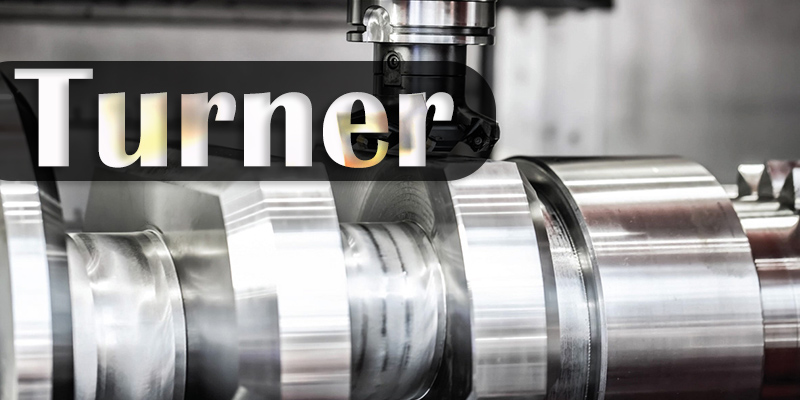
ITI trade Turner is powered by NCVT. ITI trade Turner is a job oriented trade ITI trade Turner is suitable for government job and private job. This ITI trade Turner is very powerful for self-empowerment. This ITI trade Turner is perfectly design to fulfill industrial requirement of Indian Industries as well as International industries.
After successful completion the passed out trainee
- 1. Can work in the industry as skilled turner.
- 2. Can work in the field of basic fitting, lathe, drilling, Inspection & measurement observing safety precautions.
- 3. Can perform all the turning operations on lathe & perform simple programming & operations on a CNC lathe.
- 4. Can handle different type of Fire extinguishers & personal protective equipment.
Welder

ITI trade Welder is powered by NCVT. ITI trade Welder is a job oriented trade ITI trade Welder is suitable for government job and private job. This ITI trade Welder is very powerful for self-empowerment. This ITI trade Welder is perfectly design to fulfill industrial requirement of Indian Industries as well as International industries.
Gas welding (includes gas cutting), Arc welding, TIG welding, MIG/MAG welding etc
Welder (Fabrication & Fitting)
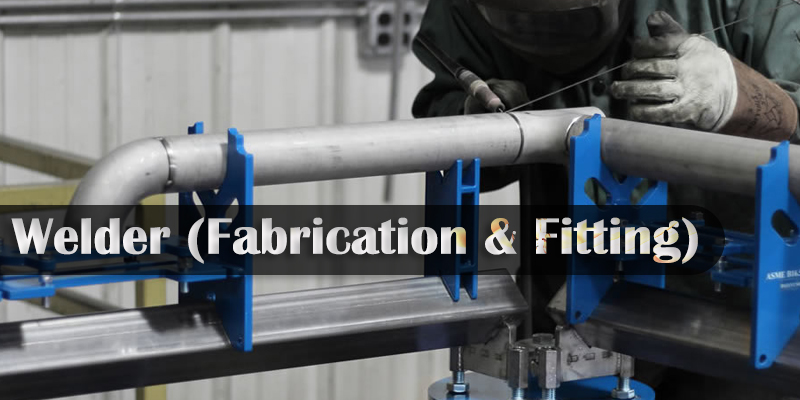
During the one-year duration of “Welder (Fabrication & Fitting)” trade, a candidate is trained on Professional Skill, Professional Knowledge, Engineering Drawing, Workshop Science & Calculation and Employability Skill. In addition to this, a candidate is entrusted to undertake project work, extracurricular activities and on-the-job training to build up confidence. The broad components covered under Professional Skill subject are as below:-
In the one-year duration, the trainee learns about elementary first aid, firefighting, environment regulation and housekeeping etc. The practical part starts with basic welding work on stainless steel, cast iron, aluminium and brass viz. cutting of pipes, brazing, arc gauging etc. Cutting of MS sheets & plates in different angles as per drawing, related to structural and pressure parts. Joining of pipes of different diameter and angles by gas welding, thread cutting on different types of pipes & fitting accessories and carry out drilling machine operations to steel structures for fabrication of structures. On completion of each welding job the trainees will also evaluate their jobs by visual inspection and identify the defects for further correction/improvement. They learn to adapt precautionary measures such as preheating; maintaining inter-pass temperature and post weld heat treatment for Welding Alloy steel, Cast Iron etc. The Work Shop calculation taught will help them to plan and cut the required jobs economically without wasting the material and also used in estimating the Electrodes, filler metals etc. The Workshop Science taught will help them to understand the materials and properties, effect of alloying elements etc. Engineering Drawing taught will be applied while reading the job drawings and will be useful in understanding the location, type and size of weld to be carried out.
Professional Knowledge subject is simultaneously taught in the same fashion to apply cognitive knowledge while executing task. In addition components like Physical properties of engineering materials, different types of iron, properties and uses, introduction to GTAW & GMAW, Heat & Temperature are also covered under theory part. In addition to above components the core skills components viz., Workshop calculation & science, Engineering drawing, employability skills are also covered. These core skills are essential skills which are necessary to perform the job in any given situation.
Welder (GMAW & GTAW)
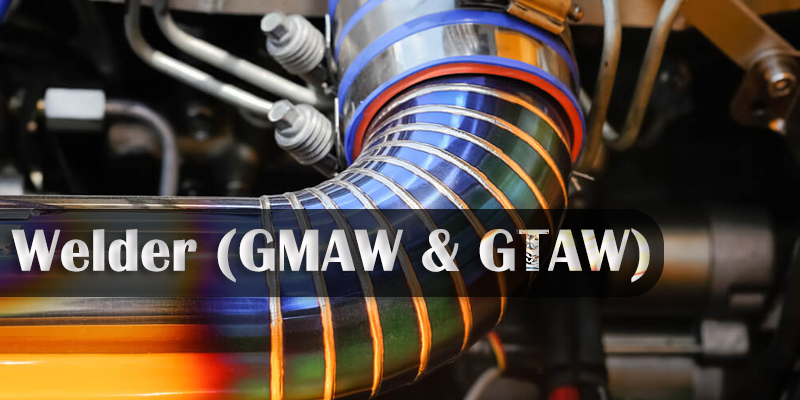
During the one-year duration of “Welder (GMAW & GTAW)” trade, a candidate is trained on Professional Skill, Professional Knowledge, Engineering Drawing, Workshop Calculation & Science and Employability Skill related to job role. In addition to this, a candidate is entrusted to undertake project work, extracurricular activities and on-the-job training to build up confidence. The broad components covered under Professional Skill subject are as below:-
Trainee learns about elementary first aid, firefighting, environment regulation and housekeeping etc. Performs joining of MS sheet by Gas welding in different positions, Joins MS plates by SMAW in different positions, performs straight, bevel & circular cutting on MS plate by Oxy-acetylene cutting process. The trainee leans joining of different types of MS pipe by Gas welding (OAW), SMAW. The Trainee sets up GMAW/ GTAW plant and weld M.S, S.S and Aluminium sheets in all positions, performs Arc gauging on MS plate, joins MS/ Aluminium /SS sheets/plates by GMAW, GTAW & FCAW process in various positions using different modes of metal transfer. Cuts ferrous and non-ferrous metal using plasma Arc cutting. The trainee tests welded joint by visual inspection Dye penetrant & Magnetic particle testing methods.
Professional Knowledge subject is simultaneously taught in the same fashion to apply cognitive knowledge while executing task. In addition components like Physical properties of engineering materials, different types of iron, properties and uses. In addition to above components the core skills components viz., Workshop calculation & science, Engineering drawing, employability skills are also covered. These core skills are essential skills which are necessary to perform the job in any given situation.
Welder (Pipe)
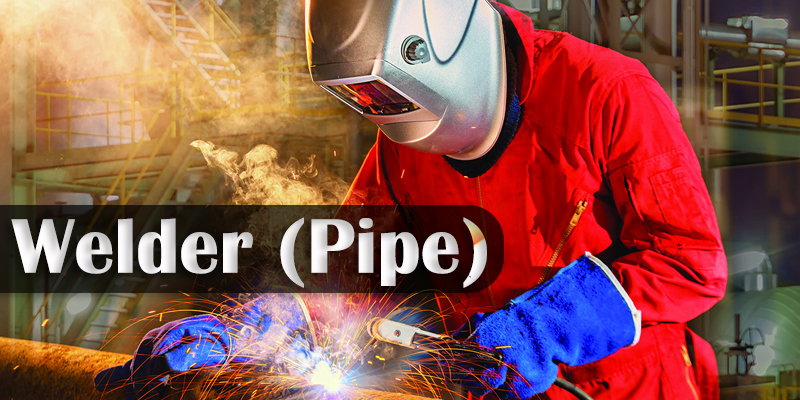
During the one-year duration of “Welder (Pipe)” trade, a candidate is trained on Professional Skill, Professional Knowledge, Engineering Drawing, Workshop Calculation & Science and Employability Skill related to job role. In addition to this, a candidate is entrusted to undertake project work, extracurricular activities and on-the-job training to build up confidence. The broad components covered under Professional Skill subject are as below:-
In the one-year duration, trainee learns about elementary first aid, firefighting, environment regulation and housekeeping etc. The practical part starts with basic pipe work viz. cutting of pipes, threading, joining, etc. Cutting Pipes in different angles, joining of pipes of different diameter and angles by gas welding, thread cutting on different types of pipes & fittings accessories. On completion of each job the trainees will also evaluate their jobs by visual inspection, and identify the defects for further correction/improvement. They learn to adapt precautionary measures such as preheating; maintaining inter-pass temperature and post weld heat treatment for Welding Alloy steel, Cast Iron etc. The Work Shop calculation taught will help them to plan and cut the required jobs economically without wasting the material and also used in estimating the Electrodes, filler metals etc. The Workshop Science taught will help them to understand the materials and properties, effect of alloying elements etc. Engineering Drawing taught will be applied while reading the job drawings and will be useful in understanding the location, type and size of weld to be carried out.
Professional Knowledge subject is simultaneously taught in the same fashion to apply cognitive knowledge while executing task. In addition, components like Physical properties of engineering materials, different types of iron, properties and uses, introduction to GTAW & GMAW, Heat & Temperature are also covered under theory part.In addition to above components the core skills components viz., Workshop calculation & science, Engineering drawing, employability skills are also covered. These core skills are essential skills which are necessary to perform the job in any given situation.
ITI Student Resume Portal
रिज्यूम पोर्टल का मुख्य उद्देश्य योग्य छात्रों की जानकारी सार्वजनिक पटल पर लाने की है जिससे जिन्हें आवश्यकता हो वह अपने सुविधा अनुसार छात्रों का चयन कर सकते हैं




